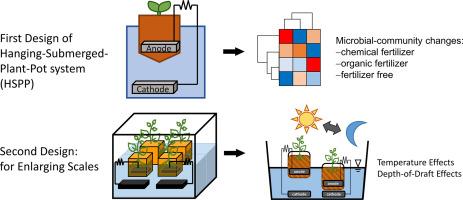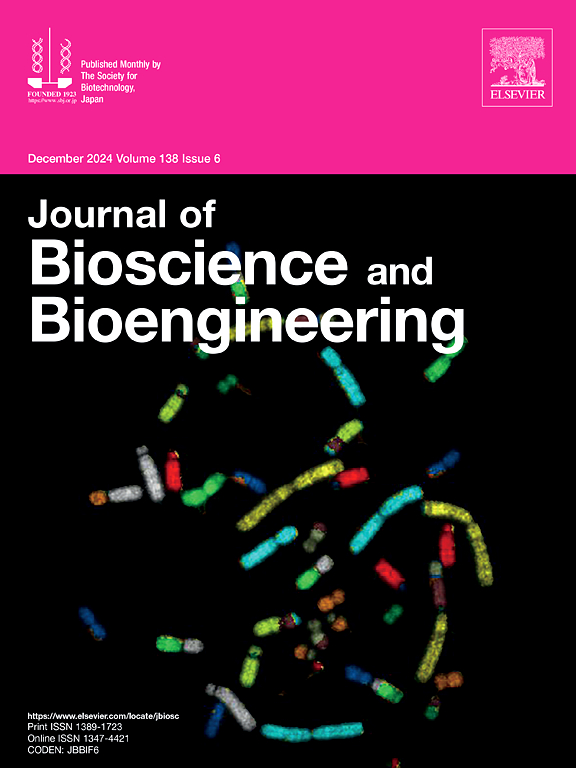Developing a plant microbial fuel cell by planting water spinach in a hanging-submerged plant pot system
IF 2.3
4区 生物学
Q3 BIOTECHNOLOGY & APPLIED MICROBIOLOGY
引用次数: 0
Abstract
To plant crops (especially dry crops such as water spinach) with concomitant electricity recovery, a hanging-submerged-plant-pot system (HSPP) is developed. The HSPP consists of a soil pot (anodic) partially submerged under the water surface of a cathode tank. The microbial communities changed with conditions were also investigated. It was found that with chemical fertilizers the closed-circuit voltage (CCV, with 1 kΩ) was stable (approximately 250 mV) within 28 d; however, without fertilizer, the water spinach could adjust to the environment to obtain a better power output (approximately 3 mW m−2) at day 28. The microbial-community analyses revealed that the Pseudomonas sp. was the only exoeletrogens found in the anode pots. Using a secondary design of HSPP, for a better water-level adjustment, the maximum power output of each plant was found to be approximately 27.1 mW m−2. During operation, high temperature resulted in low oxygen solubility, and low CCV as well. At this time, it is yet to be concluded whether the submerged water level significantly affects electricity generation.

通过在悬挂式沉水植物盆栽系统中种植蕹菜,开发植物微生物燃料电池。
为了种植农作物(尤其是旱作物,如蕹菜)并同时回收电能,开发了一种悬挂-浸没-种植盆系统(HSPP)。HSPP 由一个部分浸没在阴极槽水面下的土壤盆(阳极)组成。此外,还研究了微生物群落随条件变化的情况。研究发现,在施用化肥的情况下,闭路电压(CCV,1 kΩ)在 28 天内保持稳定(约 250 mV);但在不施用化肥的情况下,水菠菜可以适应环境,在第 28 天时获得更好的功率输出(约 3 mW m-2)。微生物群落分析表明,假单胞菌是阳极盆中发现的唯一外侵菌。为了更好地调节水位,对 HSPP 进行了二次设计,发现每种植物的最大功率输出约为 27.1 mW m-2。在运行过程中,高温导致氧气溶解度低,CCV 也较低。目前,沉没水位对发电量是否有重大影响尚无定论。
本文章由计算机程序翻译,如有差异,请以英文原文为准。
求助全文
约1分钟内获得全文
求助全文
来源期刊

Journal of bioscience and bioengineering
生物-生物工程与应用微生物
CiteScore
5.90
自引率
3.60%
发文量
144
审稿时长
51 days
期刊介绍:
The Journal of Bioscience and Bioengineering is a research journal publishing original full-length research papers, reviews, and Letters to the Editor. The Journal is devoted to the advancement and dissemination of knowledge concerning fermentation technology, biochemical engineering, food technology and microbiology.
 求助内容:
求助内容: 应助结果提醒方式:
应助结果提醒方式:


